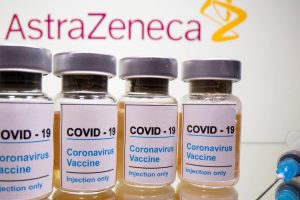An orphan drug is a pharmaceutical agent that treats a rare medical condition, the condition itself being referred to as an orphan disease. Patients with an orphan disease have very limited choices. It is, therefore, good news that Cannabis as medicine can actually help in several rare medical conditions – in so long as the patient has legal access to medical Cannabis. Only 10 out of 200 countries in the world grant their citizens access to cannabis for medical use. Another 20 countries established regulations that make cannabis as medicine accessible only in a few special cases, while in more than 150 countries legal access to this treatment remains unavailable.TOURETTE SYNDROME is a complex neurological-psychiatric disorder characterized by motor tics – sudden spasms especially in the face, the neck and the shoulders – and one or more vocal tics. In many cases, it is associated with behavioural problems or psychopathologies (autoaggression, disturbed attention, etc.). Presently, neuroleptics are the most effective drugs. However, neuroleptics are not effective in all patients and, in many cases, are not well tolerated. THC, one of the main cannabinoids in the Cannabis plant, can be effectively used to reduce tics.
A cannabis-based drug has successfully treated children with a rare form of severe epilepsy in a clinical trial. The study of Epidiolex® in DRAVET SYNDROME is the first of four final-stage Phase III epilepsy trials, with results expected this year, that the pharmaceutical company GW Pharmaceuticals hopes will confirm the therapeutic benefits of cannabidiol, the major cannabinoid of Epidiolex®.
The cannabis extract Sativex® was effective in the treatment of a patient suffering from STIFF PERSON SYNDROME (or STIFF-man SYNDROME). Physicians at the Neurology Department of the University Hospital of Ribera in Alzira, Spain, presented the case of a 40-year-old man with progressive muscle stiffness and intermittent spasms for 6-years. The cannabis spray was introduced after a series of unsatisfactory traditional medical treatments. Considerable improvement was verified after 14 months.
Researchers recently reported the case of a patient diagnosed with treatment-resistant ACHALASIA. Achalasia of the oesophagus is a failure of the muscles to relax, which can cause severe difficulties to swallow. This patient first used cannabis at the age of 20 and identified benefits regarding achalasia symptoms. He maintained regular moderate cannabis use for 9 years, with minimal digestive inconvenience.
IDIOPATHIC INTRACRANIAL HYPERTENSION is a neurological disorder characterized by high pressure in the fluid around the brain. It is also known as pseudotumor cerebri because there are some of the signs and symptoms of a brain tumor without a brain tumor being present. The space around the brain is filled with a water-like fluid, the cerebral-spinal fluid (CSF). If there is too much of the CSF present, the pressure on the brain rises. The cause of the disease is unknown. It is mainly found in overweight women of childbearing age and only rarely in thin men. The use of cannabis can effectively decrease intracranial pressure.
This article is part of the ongoing information campaign on medical cannabis by the charity “Medical Cannabis Declaration (MCD)”. MCD kicked off a crowdfunding campaign at the platform Indiegogo to finance videos and online lectures in the ten most spoken languages of the world for its information campaign. Meanwhile the crowdfunding raised nearly 18,000 $ and the campaign runs another week. Please support “Say Yes to Cannabis as Medicine”: www.indiegogo.com/projects/say-yes-to-cannabis-as-medicine–5 – IND Admin <xr66s66@int.unn-online.com>




